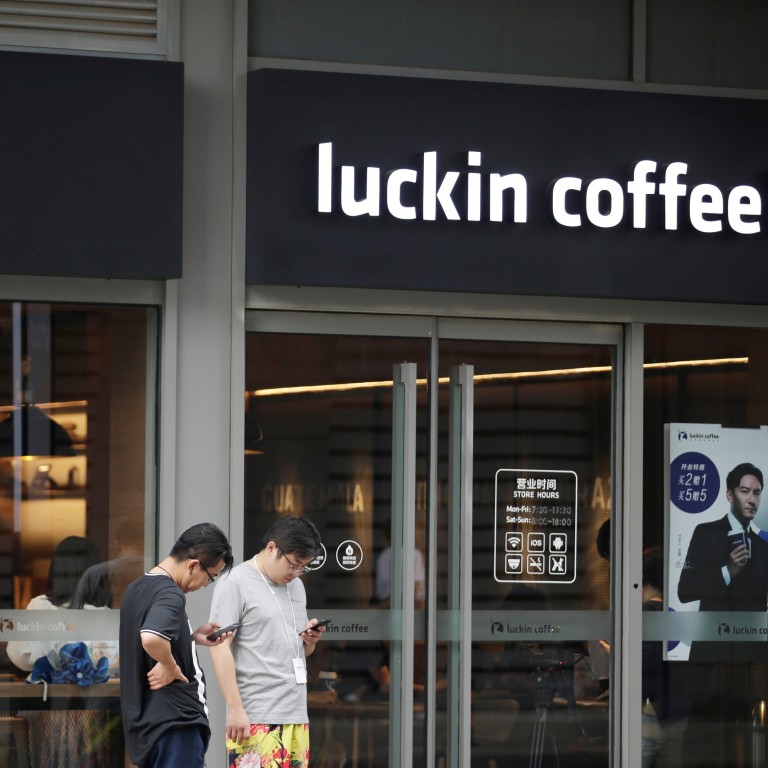
Luckin Coffee appoints liquidators, financial advisers to restructure and salvage business after accounting scandal
- Court names two officials from Alvarez & Marsal as provisional liquidators to oversee its business under the daily control of board of directors
- Luckin hires Houlihan Lokey as financial advisers to negotiate with creditors on its financial debt; estimates unrestricted cash at US$780 million
The start-up company named Alexander Lawson of Alvarez & Marsal Cayman Islands and Tiffany Wong Wing Sze of Alvarez & Marsal Asia to act as “light-touch” joint provisional liquidators (JPLs) under a Cayman Islands court order, it said in a regulatory filing in New York. The move was in response to a winding-up petition by an undisclosed creditor, it added.
Luckin’s stock has lost about 90 per cent or US$11 billion in market value since the scandal broke out in early April, prompting regulators to take steps to delist the company from the Nasdaq stock exchange barely 14 months after its debut.
Touted as China’s Starbuck, Luckin Coffee’s business model was built on outselling its rivals by expanding its outlets at breakneck speed and offering deep discounts to build followers. With a large latte priced at 24 yuan, about 20 per cent cheaper than what it costs at its Seattle-based rival, the chain quickly built up a network that reached 3,680 stores by September 2019 versus 1,189 a year earlier.
If the numbers were to be believed, it sold 34.6 million cups of freshly brewed coffee in the quarter to September 30, and counted 30.7 million of transacting customers.
Who are you calling a cheat? China rebuts US fraud claim with overture
An independent committee probing the fraud has discovered that several top executives fabricated 2.12 billion yuan (US$300 million) of sales in 2019, leading to the firing of chief executive Jenny Qian Zhiya and chief operating officer Liu Jian in May, among others.
Lu is said to have lost control of Haode after a court in the British Virgin Islands granted on July 9 an application by banks to wind up the investment vehicle and appointed KPMG to liquidate its assets, the Wall Street Journal reported on July 14.
Luckin Coffee said it will continue to operate under the control of the board of directors with the supervision of the liquidators. It held about US$780 million of unrestricted cash and cash equivalents as of June 30, with most them located in mainland China, it said in the SEC filing. The amount has not been audited due to the scandal.
Much of the cash was generated from investors who bought into its high-flying statistics. Its cash hoard was primarily fattened by US$159 million of net proceed from the sale of preferred shares in April 2019, and US$657 million from its IPO and stock placement a month later.
The coffee chain listed US$223 million in total liabilities on September 30.
These numbers, however, remained unaudited.

